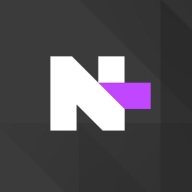

Check Point Harmony Endpoint and N-able EDR are two prominent endpoint protection solutions. Users are generally more satisfied with the pricing and support of Check Point Harmony Endpoint, but N-able EDR is often viewed as superior due to its advanced features, making it worth the investment.
Features: Users appreciate Check Point Harmony Endpoint for its robust threat prevention, automated detection, and efficient management capabilities. N-able EDR stands out for its advanced threat detection, extensive reporting features, and integrated response capabilities. N-able EDR's features are seen as more comprehensive, although Check Point Harmony Endpoint excels in ease of use and management.
Room for Improvement: Check Point Harmony Endpoint users commonly request enhancements in reporting and faster response times. For N-able EDR, users seek improved integration capabilities and more intuitive alert management. While both products have areas for advancement, N-able EDR's need for better integration is a critical point for some users.
Ease of Deployment and Customer Service: Check Point Harmony Endpoint is praised for its straightforward deployment and responsive customer service. N-able EDR, while slightly more complex to deploy, also provides strong customer support. Check Point Harmony Endpoint generally scores higher in ease of deployment, whereas both receive positive feedback for customer service.
Pricing and ROI: Check Point Harmony Endpoint users find the solution cost-effective with a good return on investment. N-able EDR, although perceived as more expensive, is valued for its extensive feature set that justifies the price. Users feel N-able EDR delivers a higher ROI due to its advanced capabilities.


Check Point Harmony Endpoint integrates security solutions, allowing comprehensive protection against cyber threats. It's designed to suit enterprise-scale operations with robust features for threat prevention and management.
Check Point Harmony Endpoint offers advanced security capabilities that prioritize threat analysis, detection, and prevention. Tailored for professional environments, it provides tools to handle endpoint vulnerabilities effectively. Its user-centric design ensures that IT teams can manage network security with streamlined operations. Continuous updates and threat intelligence are offered to counter emerging threats, and its deployment is optimized for ease of use.
What are the key features of Check Point Harmony Endpoint?In specific industries like finance and healthcare, Check Point Harmony Endpoint is deployed to secure sensitive data and protect against sector-specific threats. Its flexibility allows adaptation to meet industry standards, ensuring critical infrastructures maintain operational security without hindrance.
N-able EDR provides comprehensive endpoint detection and response capabilities, ensuring system security and facilitating rapid incident response. Users highlight its effectiveness in detecting threats and appreciate its detailed reporting and seamless integration with existing IT infrastructure.
N-able EDR stands out with its robust threat detection, efficient endpoint protection, and comprehensive incident reporting. It offers constant monitoring and protection against malware and other cyber threats. Users find the configuration easy and appreciate the detailed alerts and analysis. With real-time monitoring and automated threat response, N-able EDR allows for high customization, contributing to enhanced security management. However, users suggest improvements in customization, reporting capabilities, scalability, and faster response times.
What are the standout features of N-able EDR?N-able EDR is widely implemented across industries such as finance, healthcare, and retail. In finance, it's crucial for protecting sensitive data and ensuring compliance. Healthcare entities utilize it for safeguarding patient information against breaches. Retailers rely on its robust protection to secure transactional data from cyber threats.
We monitor all Endpoint Detection and Response (EDR) reviews to prevent fraudulent reviews and keep review quality high. We do not post reviews by company employees or direct competitors. We validate each review for authenticity via cross-reference with LinkedIn, and personal follow-up with the reviewer when necessary.